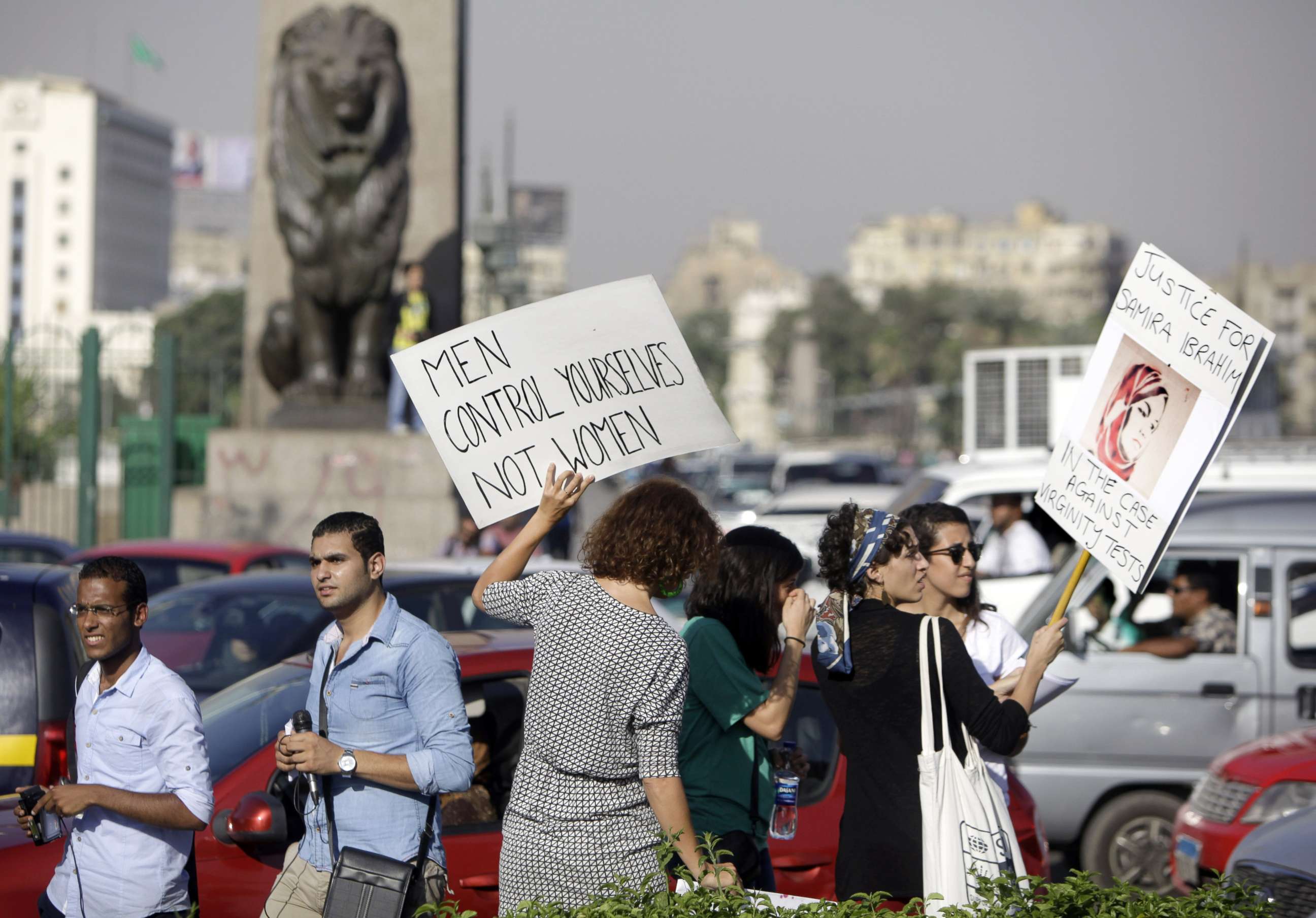Alleged Egyptian sexual harassment victim's detention is political, lawyer says
She was arrested after complaining on Facebook.
BEIRUT -- The lawyer of an Egyptian woman who was convicted of spreading fake news says her client is being punished for the politics of her husband.
Amal Fathi was arrested last May after posting a video on her Facebook page where she complained against deteriorating state institutions and the failure to end sexual harassment, alleging she was harassed by the security at a state-owned bank.
“He talked to me while he was grabbing his thing,” Fathi says in the video. She also mentions another alleged harassment by a taxi driver and repeatedly uses profanity to insult the bank employees and the state.

On Saturday, she was sentenced to a two-year suspended sentence and a fine of EGP 10,000 ($560). Fathi is also being investigated in a separate case where she is accused of charges that include joining an outlawed group and using social media to incite terrorist activities and disturbing public order.
The case, known as “the social media case," includes others who were arrested over content published on their social media accounts.
According to her lawyer, Doaa Mostafa, Fathi is being punished because of her husband, a human rights defender and director of the Cairo-based Egyptian Commission for Rights and Freedom (ECRF). Her husband, Mohamed Lotfi, was arrested with her in May but was quickly released, according to Mostafa, because he holds a Swiss passport.
Mina Thabet, program director at ECRF, told ABC News that Fathi was pressured to testify against her husband in return of her release.
“They asked for information about his work, the ECRF and asked her to claim that the video was his idea,” he said.
On Friday, 17 United Nations human rights experts released a statement condemning Egypt's use of antiterrorism laws to target human rights defenders.

“Counter-terrorism legislation should not be used as an excuse to suppress dissent or curtail human rights work,” the statement said.
Thabet does not deny that Fathi is being punished for speaking out against sexual harassment and defying what he described as the masculine mentality of Egypt’s governing system.
He further blamed the lack of female representation in the judicial system.
“The crime is committed by a man, investigated by a man and the final verdict is given by a man,” he said.
Mostafa claimed the judge mocked Fathi at one court appearance, telling her the next time she gets upset she “should go to the bathroom and scream.”
According to a 2013 report by the United Nations, more than 99 percent of Egyptian women have been a victim of sexual harassment.
This month, journalist Mai El-Shami was allegedly fired from her job after she came forward with sexual harassment allegations against her supervisor at Youm Sabei, a pro-state daily newspaper.

Another woman, Menna Gobran, who filmed an alleged stalker last month, faced online criticism from people who defended the man’s behavior as “flirting,” turning him into an online celebrity and asking to take photos with him. He later filed a lawsuit of defamation against Gobran.
Gobran, who was also fired from her job, faced unprecedented support from Al-Azhar, Egypt’s top Muslim authority, which released a statement condemning sexual harassment and denouncing victim blaming.
Thabet said while the verdict against Fathi is a clear message from the government to discourage women to publicly share their experience with sexual harassment, he doubts it will stop women from speaking up.
“There is a global feminist movement to speak up against sexual assaults, it is not just about Egypt,” he said.
“Yes, there will some who are scared, but women are more brave now to defy this masculine authoritarian regime,” he added.




